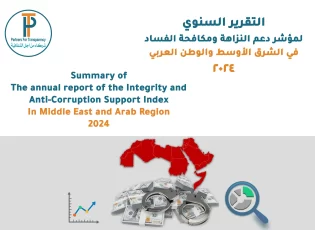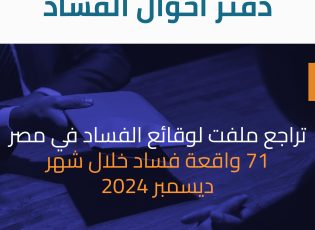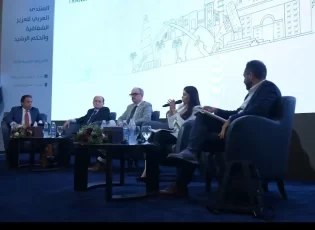84 incidents of corruption and oversight and implementation efforts on service agencies affiliated with ministries
Within the framework of the “Corruption Casebook” series, the “Partners for Transparency” Foundation continues to issue monthly reports to monitor and follow up on corruption incidents in Egypt, which focus on monitoring and analyzing legislative and procedural developments related to combating corruption, as well as listing the incidents that were revealed during the month of June 2024. , and classify them sectorally and geographically, with the aim of identifying the sectors that witness the most corruption incidents, as well as the governorates in which these incidents are most concentrated.
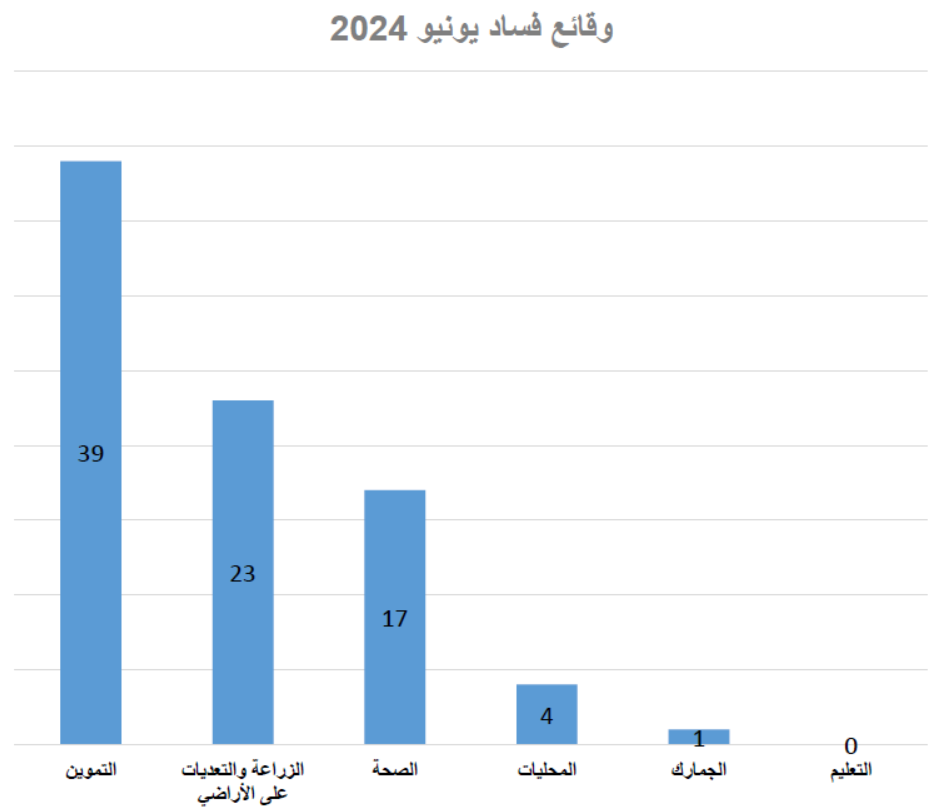
June recorded a slight increase in the number of corruption incidents, as 84 incidents were recorded, compared to the 81 corruption incidents recorded last May, which represents an increase of 3.5% in the corruption rate, and the catering sector topped the list in the number of incidents during June, as 39 corruption incidents were recorded. With a percentage of 46 % of the total incidents witnessed in the month of June, it was closely followed by the agriculture and land encroachments sector, with 23 incidents and a percentage of 27 % of the total incidents under study. The health sector came in third place with 17 incidents of corruption and a percentage of 20 % of the total incidents of corruption.
Geographically, Beheira Governorate repeatedly ranked first among the Egyptian governorates in terms of corruption incidents during the month of June, by recording 10 incidents and a percentage of 12% of the total incidents, while 3 governorates combined recorded a rate of 29.5% of the total incidents of corruption nationwide, as These governorates witnessed the largest number of corruption incidents during June: Beheira, Gharbia, and Giza.
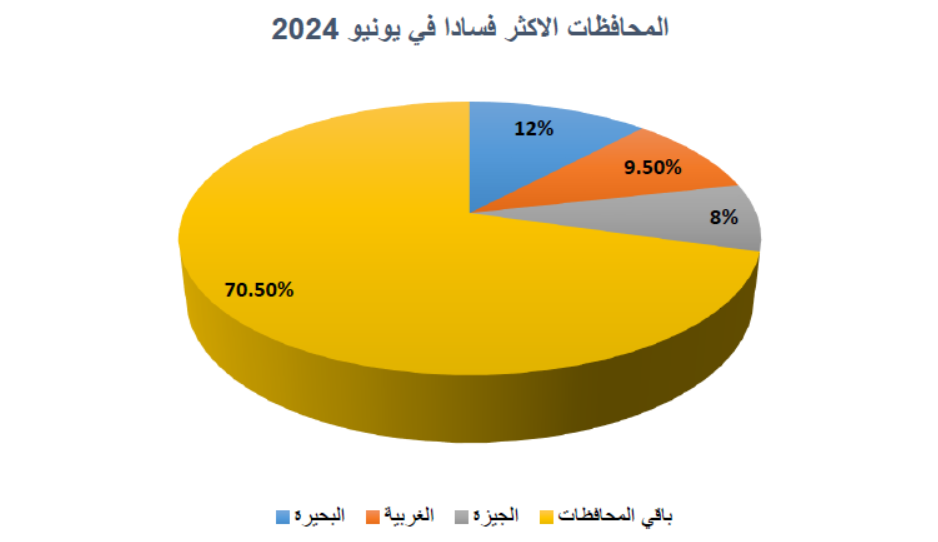
In this context, Partners for Transparency made a number of recommendations, including speeding up the issuance of the localities law in order to enhance local control over the various supply directorates, in addition to not renewing the renewal of retirees from the Ministry of Supply, which allows the entry of new elements into the ministry after undergoing specialized training and awareness programmes. In addition to simplifying the procedures for completing the reconciliation process in building violations, while creating a digital platform for health contracts that allows for public oversight of the operations carried out by the government.
Short link: https://pfort.org/en/?p=5423





